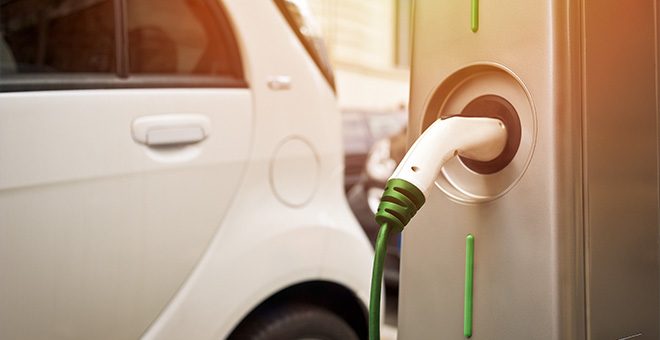Wondering why zero emission vehicles aren’t exempt from the PST surtax
Yesterday during committee stage of Bill 2: Budget Measures Implementation Act, 2018 I rose to ask the Minister of Finance why her ministry did not exempt zero emission vehicles from the PST surtax that they are now applying to higher end cars. As I note in the text and video exchange reproduced below, early adopters of new technology typically heavily subsidize the research and development (R and D) costs of such technology. These early adopters play a critical role in ensuring that new innovations ultimately become affordable for mainstream society.
In my opinion, zero emission vehicles should have been exempted from this surtax.
Text of Exchange
A. Weaver: The question I have for this section, I’ll ask it once and not repeat it for the other sections. It’s with respect to different types of classes of vehicles. I recognize that the minister had outlined the existing legislation and the taxes that apply below $125,000.
My question to the minister is this. To preface it, it’s that we know, in certain sectors, that early adopters are the ones that pay the R and D for new technology to emerge. If we go and look at flat screen televisions, the people who bought the first flat screens paid thousands and thousands of dollars. Now they’re literally giving them away when you sign deals — left, right and centre.
My question is: did the minister or her staff not think about exempting hydrogen fuel cell electric vehicles from this tax? That is, with recognition that it is those early adopters that are paying the R and D in this new and emerging technology that allows others to actually buy these technologies, which is a direction we want to go.
So my question is: why did the ministers not exempt zero-emission vehicles from this additional PST? Ultimately, we want to tax that which we don’t want, and we want to not tax that which we do want. These are zero-emitting vehicles.
Hon. C. James: Thank you to the member for the question. In fact, we did take a look at battery-electric vehicles available in British Columbia. We did look at prices. The member is quite right. It’s obviously an area we want to incent support for.
If you take a look…. I’ll just give you some prices of the base models. I recognize that there are models that could be much more extreme than this. But if you look at the base models, for example, of Teslas — a Model 3 or Model S or Model X — those are all under $125,000. We feel that that fits within the existing bill.
A Nissan LEAF, for example, is $35,000; a Fortwo electric drive, $29,000. If you take a look at the prices — a BMW i3 is $50,000 — they’re all well within the range and under the $125,000. We felt that that was a reasonable approach and didn’t penalize, as the member has suggested, the kind of behaviour that we want to incent.
A. Weaver: Just to follow up, though. In fact, as the technologies emerge…. You couldn’t buy a hydrogen fuel cell. We don’t know whether that’s going to be the technology of tomorrow. But suppose a company decides to put that on the market. It’s zero-emitting. We don’t know that that…. We would want to let the early adopters actually pay the price, if they want to have that niche article, and not tax them.
In addition, we’re now talking about driverless vehicles. The high-end Teslas…. The Model X actually has a driverless component to it, and to get $125,000…. It goes rather quickly, and also the other exemptions for above 50 and above 67 too.
Again, I recognize the minister says that they took a look at the cars. But the reality is that the reason why we can buy a Nissan LEAF now for $35,000 is precisely because people were willing to pay $100,000 plus for those Teslas, and you got the investment in the battery technology that led to the mass production of the smaller cars.
Again, I would hope that the minister would recognize that this has been viewed very negatively within the electric vehicle sector of our society because of the fact that it’s not differentiating between those cars that pollute and those cars that don’t. It’s being viewed simply as a punitive measure on those early adopters who are trying to actually get the market going in the direction they wish it to go.
Hon. C. James: Thanks to the member. I appreciate that. But again, when we’re taking a look at an increase in the purchase price of vehicles over $125,000 and over $150,000, I think that’s a reasonable approach. It doesn’t mean that those won’t be adjusted over time as additional vehicles come on the market.
I certainly know that most companies are looking at, when they get their vehicles on the market, as much affordability as they can. There are certainly other incentives that are often offered, whether it’s a rebate for an electric vehicle or otherwise. There are other kinds of rebates that occur as well.
We felt that this was a fair process. As I said, when I take a look at the models that are on the market, I think even Tesla…. When you’re looking at $122,600, that’s still a fairly pricey vehicle. We think $150,000 and $125,000 are a reasonable approach.
But I take the member’s point and understand that, always, there are opportunities to go back and take a look, as I said earlier, at a number of taxes we’ve talked about. There are always opportunities at the end of each year to take a look at their impact, to take a look at whether they’ve been effective or not and adjust as may or may not be needed.
Video of Exchange
Comments are closed.




